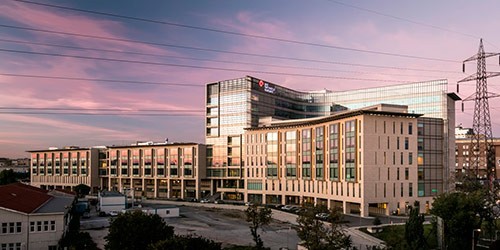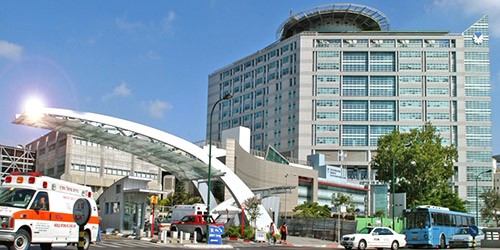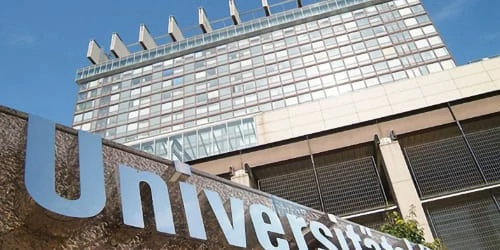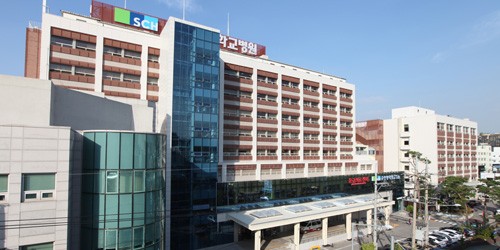Gastric metaplasia is a disease that often precedes cancer. According to the World Health Organisation, gastric malignancies are the fifth most common oncology in the world. It causes more than 723,000 deaths each year. Hospitals report that up to ¼ of patients undergoing gastric endoscopy have signs of gastric metaplasia. However, not all are subsequently diagnosed with cancer. Should you worry when you hear the diagnosis, how to choose the right treatment, and whether surgery is necessary, you can learn about it in our article.
Listen to the article:
What is gastric metaplasia and how dangerous is it?

Gastric metaplasia is a disease in which the mucous membrane of the stomach is replaced by ‘bocalytic cells’, which are usually found on the walls of the intestine. The disease is considered dangerous because it can develop into a malignancy – gastric cancer. Прогноз и план лечения метаплазии слизистой желудка завgastric cancer. The prognosis and treatment plan for gastric mucosal metaplasia depend on the extent of the damage and the general condition of the patient.
The exact cause of gastric metaplasia is unknown. The disease is usually associated with the bacterium Helicobacter pylori, which is found in 38-43% of patients. Other risk factors include smoking, alcohol consumption, smoked meats, radiation exposure, old age, vitamin C deficiency and close family members with stomach cancer.
If gastric metaplasia is left untreated, there is a risk of the disease progressing. This condition is called dysplasia, stage 0 of gastric cancer. Healthy cells start to be replaced by abnormal cells. The disease is rarely detected at this stage, but it is well treated.
Depending on the number of altered cells, gastric metaplasia is divided into three stages: mild, moderate and severe. In the earlier stages, conservative treatment will suffice, while surgery may be recommended in the final stages.
If you are in doubt about your diagnosis, it is possible to get a second medical opinion from an experienced foreign gastroenterologist. Doctors review histology, diagnose and make treatment recommendations based on modern treatment protocols. To book the service, please leave an application on the website.
Residents of Asian countries such as China, Mongolia, Kyrgyzstan and Korea have a higher risk of developing gastric adenocarcinoma due to their diet and lifestyle habits. Therefore, treatment protocols for gastric metaplasia for these groups are more stringent.
Symptoms of gastric metaplasia
Most patients with gastric metaplasia have no symptoms. The disease may be detected accidentally during an endoscopy.
Other people may go to the doctor with symptoms typical of many gastrointestinal diseases. These do not necessarily indicate metaplasia. These signs include:
acid reflux,
gastritis,
gastric ulcers,
gastroesophageal reflux disease (GERD).
Can gastric metaplasia be cured?
Yes, most doctors have reason to believe that, with adequate treatment and adherence to the doctor’s recommendations, gastric metaplasia can be reversible. The patient will need to remain under the care of a gastroenterologist and undergo regular check-ups until the doctor confirms that the abnormal tissue change has passed. It can usually take up to three to five years from diagnosis to recovery. However, even after that, the patient should stick to the doctor’s recommendations regarding diet, regimen and medication to prevent a recurrence of the disease.
How is gastric metaplasia diagnosed?
Gastric metaplasia is usually detected during an upper endoscopy. This is a diagnostic procedure during which the doctor examines the oesophagus and stomach with a camera. Metaplasia appears as whitish plaques, spots or homogeneous discolouration. If abnormal areas of the walls of the organ are found, endoscopy with biopsy is performed, during which the doctor uses a needle to take a tissue sample for laboratory examination. It is important to take the biopsy in the right area, so an endoscopy should be performed by an experienced gastroenterologist so as not to miss the disease. The accuracy of the method has an average of 71.3%.
Some clinics use an advanced form of diagnosis – endoscopy using methylene blue contrast dye. This method allows a more detailed examination of the stomach, but it takes longer.
During the treatment of gastric metaplasia, doctors carry out diagnostic tests to check the effectiveness of the treatment. These may include:
serological analysis;
C-urease breath test;
Helicobacter antigen test in the stool.
You will also need to undergo endoscopy again during treatment, depending on the doctor’s recommendation, every 3-12 months. If an endoscopic biopsy shows the absence of metaplasia twice in a row, the disease can be considered to have gone away.
To make an appointment for a diagnosis, leave a request on our website. Our coordinating doctors will help you get a quick response from the clinic you are interested in and will take care of your travel arrangements.
How is gastric metaplasia treated?
In the treatment of gastric metaplasia, the most important point is to assess the risk of developing cancer. Depending on this, doctors’ recommendations for monitoring and treating the disease may differ. The main treatments for gastric metaplasia include:
Treatment of H. pylori infection | Because Helicobacter pylori are considered a major risk factor for the development and progression of gastric cancer, its eradication is recommended for all patients with metaplasia. The British Gastroenterological Association (BSG), the American Gastroenterological Association (AGA) and other organisations recommend this.
Research by doctors in different countries, including Italy, Japan, Britain and Taiwan, has shown that killing Helicobacter pylori in the first year of illness significantly reduces the risk of subsequent gastric adenocarcinoma. |
Follow-up | Most patients with gastric metaplasia will need to remain under observation by a gastroenterologist for several years. Depending on the presence of specific risk factors, patients will need fewer or more frequent endoscopies. These factors include age over 50 years, vitamin B12 deficiency and positive antibodies to gastric parietal cells or intrinsic factors.
Patients with extensive gastric metaplasia affecting the entire organ are advised to remain under observation for three years. This also applies to people with resistant H. pylori infection and the presence of relatives who have had gastric cancer. |
Surgery | Surgical treatment of gastric metaplasia is reserved for the advanced stage of the disease. Surgery is recommended after two gastroenterology pathologists confirm the diagnosis after a biopsy. The operation is done endoscopically, which means the doctor does not need to make incisions on the patient’s body. Just as in diagnostic endoscopy, a flexible tube with a camera is inserted into the patient’s stomach through the mouth. The doctor uses an electric current to cut out the tumour, which can be up to 3 cm in diameter, bloodlessly. Polyps, if they are present in the stomach, can be removed at the same time. The resection takes 20 minutes to an hour and does not require hospitalisation. |
Preventing a relapse | During and after treatment for gastric metaplasia, it is important to follow your doctor’s recommendations to ensure that treatment remains effective and the disease does not return. These relate to changes in diet and lifestyle habits that will remove some of the risk factors for gastric carcinoma. Doctors recommend that patients with gastric metaplasia:
|
Where can gastric metaplasia be treated abroad?
Resume
Gastric metaplasia is considered a precancerous condition and a risk factor for adenocarcinoma of the stomach. The disease is characterised by changes in the cells of the inner walls of the organ and is associated with Helicobacter pylori infection. It can often be asymptomatic or appear as general indigestion.
The main method for diagnosing gastric metaplasia is endoscopy. In addition to this, doctors may prescribe additional tests.
Gastric metaplasia is considered a reversible condition. Depending on its stage, doctors may recommend conservative or surgical treatment. Surgery is reserved for the treatment of severe gastric metaplasia. Internationally, this procedure is performed endoscopically and without blood loss. Proper diet and avoidance of unhealthy habits are also important for recovery.
MediGlobus recommends the following foreign clinics for the diagnosis of gastric metaplasia: Koç University Hospital, Bahçelievler Memorial (Turkey), Souraski Clinic (Israel), Uniclinik Cologne (Germany), Vienna Private Hospital (Austria) and SoonChunHyang Hospital (Korea).
To book a treatment abroad for gastric metaplasia, leave an application on our website. Our coordinating doctors will contact you within a few hours to help you organise your trip free of charge.
Sources:
- 1. The American Journal of Gastroenterology: Pathology of Gastric Intestinal Metaplasia
- 2. Gastroenterology & Hepatology: Overview of Current Concepts in Gastric Intestinal Metaplasia and Gastric Cancer
- 3. Is intestinal metaplasia of the stomach reversible?
- 4. Current Opinion in Gastroenterology: Gastric intestinal metaplasia – what to do next?
- 5.Cancer Cell International: A novel method of grading gastric intestinal metaplasia based on the combination of subtype and distribution
- 6. British Society of Gastroenterology guidelines on the diagnosis and management of patients at risk of gastric adenocarcinoma
- 7. AGA Clinical Practice Guidelines on Management of Gastric Intestinal Metaplasia












